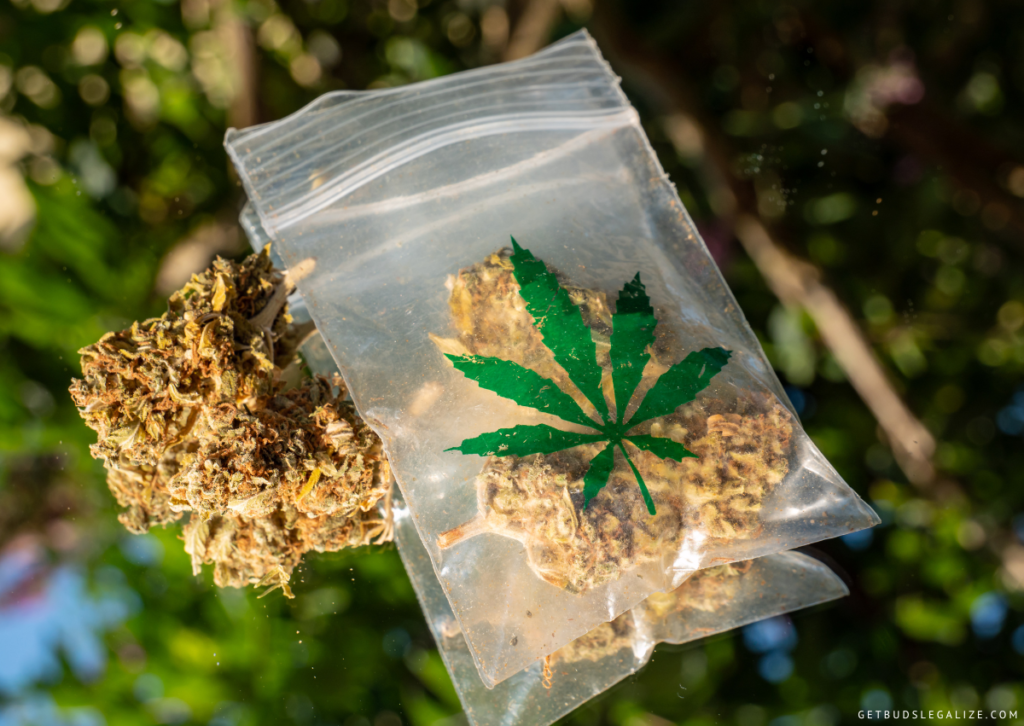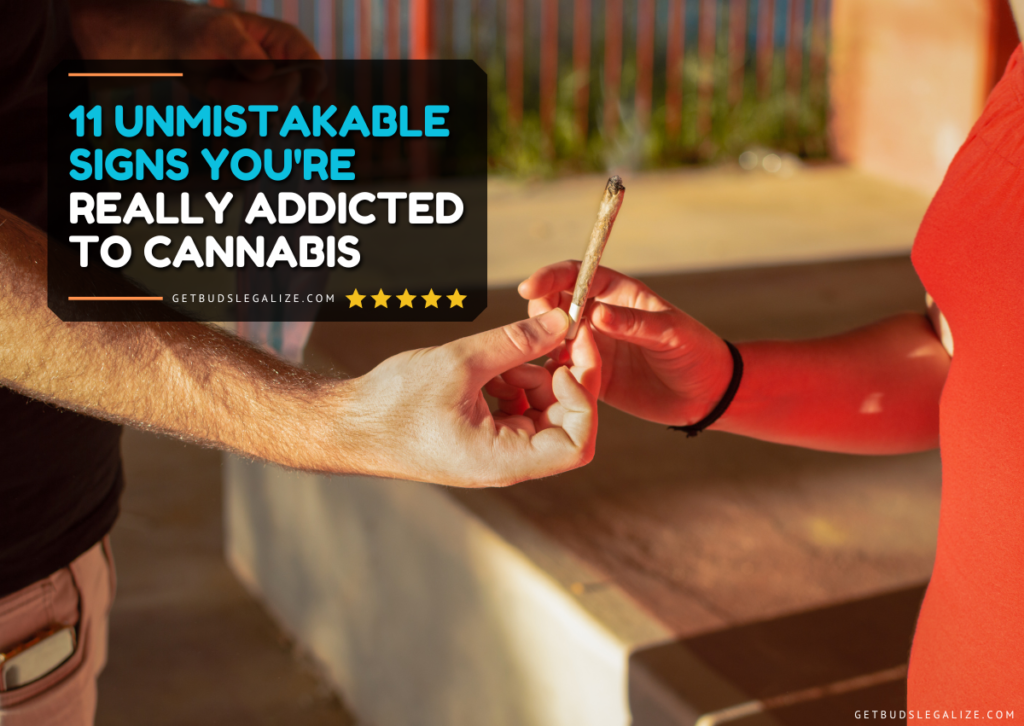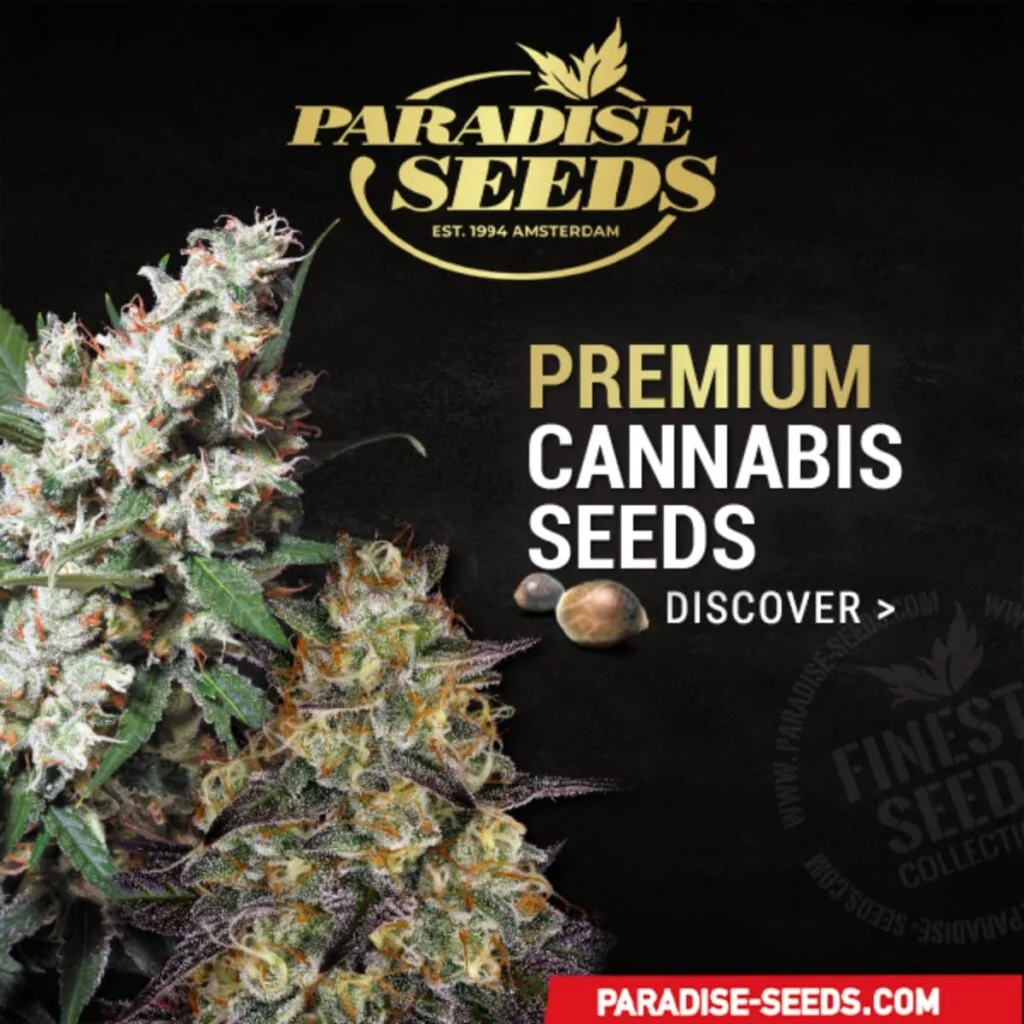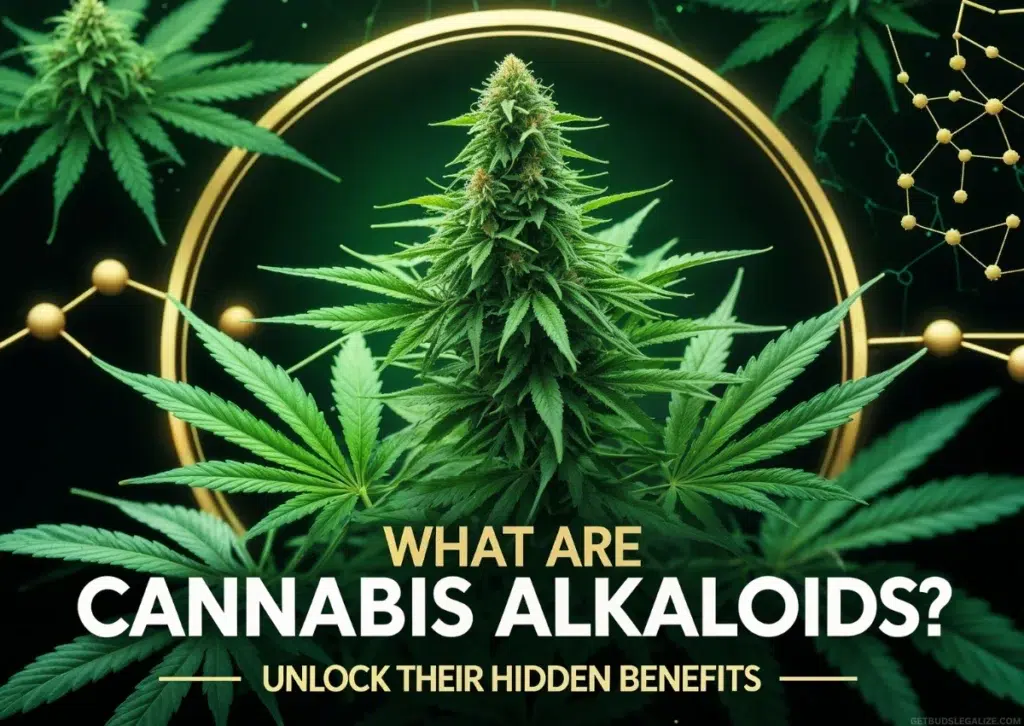11 Unmistakable Signs You're Really Addicted To Cannabis
Cannabis is a widely used substance that can have various effects on the mind and body. Some use it for medical reasons, while others use it for recreational purposes. However, cannabis can also cause problems for some users, especially if they are overused or addicted. Cannabis addiction, also known as cannabis use disorder, is a condition in which a person has difficulty controlling their use despite experiencing negative consequences.
But How Do You Know If You Are Addicted to Cannabis? Here Are 11 Signs That May Indicate A Problem With Your Cannabis Use

1. You Need More Cannabis to Get The Same Effect:
This is called tolerance, and it means that your body has adapted to the presence of cannabis and requires higher doses to achieve the desired effects. Tolerance can increase the risk of overdose and other health problems.
2. You Experience Withdrawal Symptoms When You Stop Using Cannabis:
Marijuana withdrawal symptoms are physical and psychological reactions that occur when a person stops or reduces cannabis use after a period of regular or heavy use. Symptoms may include irritability, anxiety, insomnia, changes in appetite, mood swings, restlessness, headaches, and cravings.
3. You Spend a Lot of Time and Money on Obtaining, Using, or Recovering From Cannabis:
Cannabis addiction can interfere with your daily life and responsibilities. You may spend hours or days acquiring, using, or recovering from cannabis, neglecting your work, school, family, or personal obligations. You may also spend more money than you can afford on cannabis, leading to financial difficulties or debts.
4. You Have Tried to Cut Down or Quit Using Cannabis but Failed:
You may have attempted to reduce or stop your cannabis use several times, but you always end up relapsing or using more than you intended. You may feel powerless or hopeless about your ability to quit or control your cannabis use.
5. You Use Cannabis in Situations Where It Is Dangerous or Inappropriate:
You may use cannabis in situations where it can impair your judgment, coordination, or performance, such as driving, operating machinery, or working. You may also use cannabis in places where it is illegal, risky, or frowned upon, such as at school, work, or in public. You may disregard the potential legal, social, or professional consequences of your cannabis use.
6. You Have Problems With Your Relationships, Work, School, or Health Because of Your Cannabis Use:
Cannabis addiction can affect various aspects of your life and well-being. You may have conflicts or arguments with your family, friends, or partner because of your cannabis use or behavior. You may also perform poorly or miss deadlines at work or school because of your cannabis use or impairment. You may also experience physical or mental health problems because of your cannabis use, such as respiratory infections, memory loss, anxiety, depression, psychosis, or paranoia.
7. You Use Cannabis to Cope With Stress, Emotions, or Other Issues:
You may rely on cannabis as a way of escaping from your problems or coping with your negative feelings. You may feel that you need cannabis to relax, calm down, cheer up, or have fun. You may also avoid dealing with the underlying causes of your stress, emotions, or issues by using cannabis.
8. You Have Lost Interest in Activities or Hobbies that You Used to Enjoy:
Cannabis addiction can affect your mood and motivation levels. You may find yourself less interested in things that used to bring you joy or satisfaction, such as sports, music, art, or socializing. You may also isolate yourself from others who do not share your cannabis habit or who disapprove of your cannabis use.
9. You Have a Strong Urge or Craving to Use Cannabis:
You may feel a strong desire or compulsion to use cannabis, especially when you are exposed to triggers or cues that remind you of it. For example, you may crave cannabis when you see someone smoking it, when you smell it, when you are bored, or when you are stressed.
10. You Ignore the Negative Effects of Your Cannabis Use:
You may deny or minimize the negative effects of your cannabis use on yourself and others. You may rationalize or justify your cannabis use by saying that it is harmless, that it helps you, that everyone does it, or that you can quit anytime. You may also ignore the feedback or advice from others who are concerned about your cannabis use.
11. You Experience Negative Emotions When You Sre Not Using Cannabis:
You may feel unhappy, anxious, depressed, guilty, or ashamed when you are not using cannabis. You may also feel restless, bored, or dissatisfied with your life without cannabis.
How Can You Treat Your Cannabis Addiction?

If you think you’re addicted to cannabis, you’re not alone. Many people struggle with cannabis addiction and seek help. There are various treatments and options available to get out of cannabis addiction, such as:
- Counseling: Counselling is a form of therapy where you talk to a professional counselor about your cannabis use and its effects on your life. Counseling can help you understand the reasons behind your cannabis use, identify your triggers and coping strategies, set goals and plans for change, and develop skills and resources to manage your cannabis use and recovery.
- Medication: This is a form of treatment where you take prescribed medications to help reduce or stop your cannabis use. Medications can help you reduce cravings, ease withdrawal symptoms, and treat any co-occurring mental health conditions that may be contributing to your cannabis use.
- Support groups: Support groups are a form of treatment where you join a group of people who share similar experiences and challenges with cannabis use. Support groups can provide you with peer support, encouragement, advice, and accountability for your cannabis use and recovery. Support groups can be online or offline, formal or informal, and follow different models or approaches, such as 12-step programs, SMART Recovery, or Marijuana Anonymous.
- Rehabilitation programs: Rehabilitation programs are a form of treatment where you stay in a residential or outpatient facility for a period of time to receive intensive and comprehensive care for your cannabis use and recovery. Rehabilitation programs can offer you a structured and supportive environment, where you can access various services and interventions, such as medical care, counseling, medication, education, vocational training, recreational activities, and aftercare.
Where Can You Find More Information or Support for Your Cannabis Addiction?
If you want to find more information or support for your marijuana addiction, you can:
- Visit the National Institute on Drug Abuse (NIDA) website at https://www.drugabuse.gov/drug-topics/marijuana
- Contact the Substance Abuse and Mental Health Services Administration (SAMHSA) at 1-800-662-HELP (4357)
- Search for local treatment providers or support groups at https://findtreatment.samhsa.gov/
- Contact your doctor, therapist, or counselor for referrals or recommendations
Bottom Line
If you recognize any of these signs in yourself or someone you care about, it may be time to seek help for your cannabis use. There are various treatment options available for CUD and addiction, such as counseling, therapy, medication, support groups, or rehabilitation programs. The first step is to admit that you have a problem and be willing to change.
Remember that you are not alone in this struggle and that recovery is possible with the right support and guidance.
FAQs
CBD, or cannabidiol, is one of the many compounds found in cannabis plants. Unlike THC, the main psychoactive ingredient in marijuana, CBD does not produce high or impaired cognition. However, some people may wonder if CBD is addictive or if it can lead to marijuana abuse.
According to the World Health Organization, CBD has no potential for dependence or abuse. CBD does not activate the same brain receptors as THC, and it may even counteract some of the negative effects of THC. Therefore, CBD is not considered a gateway drug to marijuana or other substances.
However, this does not mean that CBD is completely safe or without risks. CBD products are not regulated by the FDA, and they may contain varying amounts of THC or other contaminants. Some people may also experience side effects from CBD, such as drowsiness, dry mouth, or interactions with medications. Additionally, some people may have underlying risk factors for substance abuse, such as genetic predisposition, mental health issues, or environmental stressors.
Therefore, it is important to consult with a doctor before using CBD products, especially if you have a history of drug abuse or addiction. CBD may have some therapeutic benefits for certain conditions, but it is not a substitute for professional medical advice or treatment. CBD should be used with caution and moderation, and only from reputable sources.
Cannabis addiction is a condition characterized by a compulsive and problematic pattern of cannabis use that causes significant impairment or distress in various areas of life.
According to the World Health Organization, cannabis is the most widely used illicit substance in the world, with an estimated 192 million users in 2018. About 22.5 million people (or 11.7% of users) suffer from cannabis use disorders, which include cannabis dependence and cannabis abuse.
Marijuana addiction is influenced by a complex interplay of biological, psychological, social, and environmental factors. Some of these factors include genetic predisposition, brain chemistry, personality traits, mental health conditions, peer pressure, family history, availability, and cultural norms.
Cannabis use can have various long-term effects on physical and mental health. According to the Mayo Clinic, smoking cannabis can affect memory and cognitive function, raise blood pressure and worsen respiratory conditions.
A study by Northwestern Medicine found that chronic cannabis use during adolescence can alter the shape of the hippocampus, the brain region responsible for long-term memory, and impair memory performance in adulthood.
Cannabis use can also increase the risk of developing psychotic disorders such as schizophrenia, especially in people with a genetic vulnerability. Furthermore, cannabis use can lead to addiction, which is characterized by an inability to stop using the drug despite its negative consequences. Addiction treatment may involve psychotherapy, medication, or both.
The term medical-marijuana refers to the use of cannabis products to treat certain health conditions, such as pain, anxiety, depression, or insomnia. However, cannabis use can also carry some risks, especially for people who have a history of substance abuse, psychosis, or heart problems.
According to some studies, medical cannabis can trigger or worsen symptoms of cannabis use disorder (CUD), which is a form of addiction involving tolerance, withdrawal, and impaired functioning. Therefore, it is recommended to use it with caution and under the guidance of a qualified doctor who can monitor its effects and dosage.

















